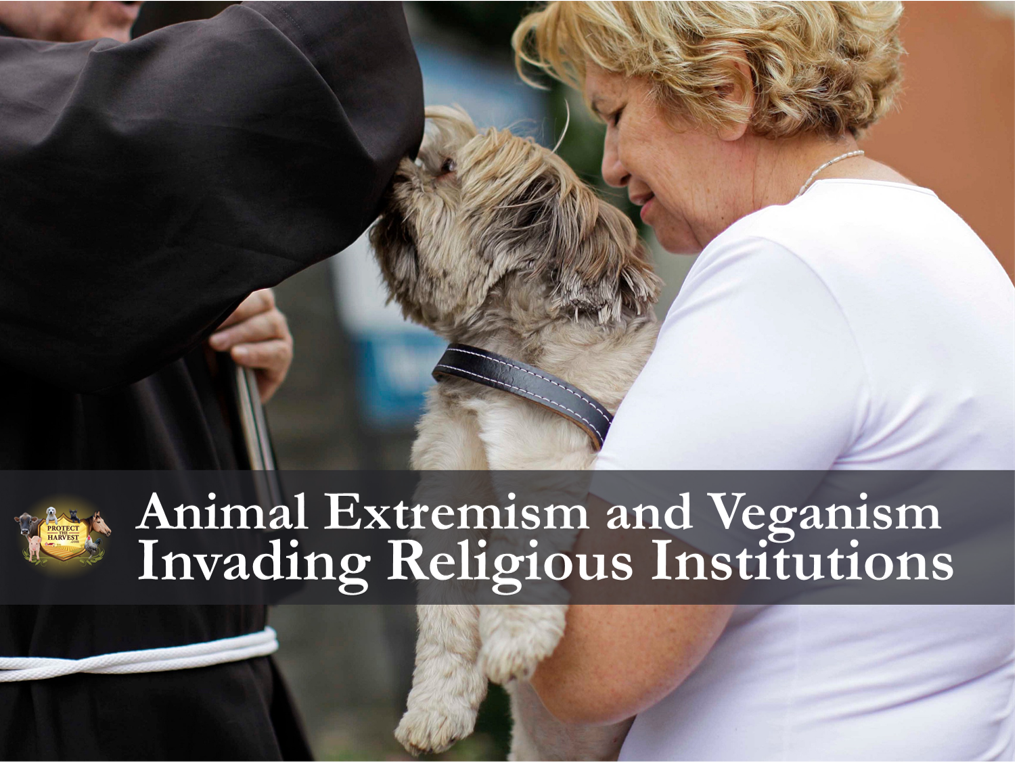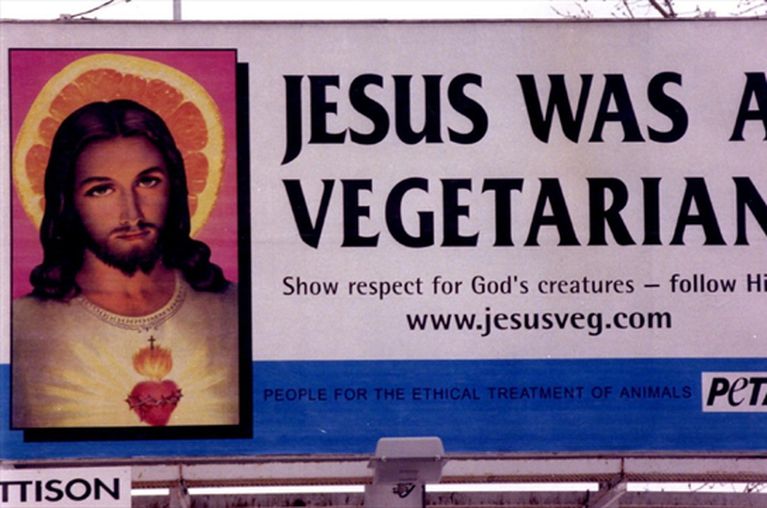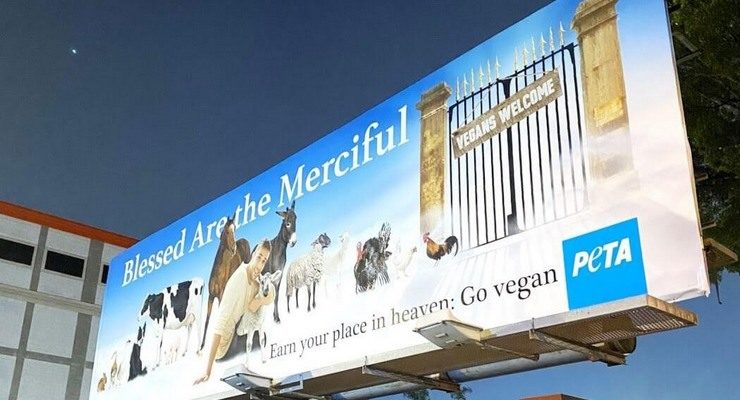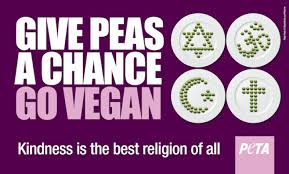
Animal extremist groups have been hard at work, spreading their tentacles as far as they can into culture and society. They accomplish this by numerous methods such as infiltrating school curriculums and using lawmakers and legislation to manipulate the public and push their ideology.
Extremist groups have realized the power and influence religion and churches have on many people’s lives. According to an article on the Animal Agriculture Alliance website, Wes Jamison, a public relations professional at Palm Beach Atlantic University stated that Christian theology used to be a protection against animal extremist ideology. Jamison now says, “…groups like HSUS have reframed Biblical teachings in order to make parishioners feel guilty about animal treatment and consumption.” He also says that extremist groups have targeted Evangelical pet owners who don’t follow literal Biblical doctrines.
In this article we will examine animal and environmental extremist groups and their work that is used to influence churches and religious institutions. We will also expose the criteria that shows these groups as having cult-like qualities.
People for the Ethical Treatment of Animals (PETA) and the Humane Society of the United States (HSUS), as well as other groups, have in recent years started divisions in their organizations specifically targeting churches and congregations. They call it a “Faith Outreach” branch or council. These religious outreach efforts work to manipulate churches and congregations into changing their beliefs and practices. Along with direct contact via their outreach personnel, extremist groups use multi-level media campaigns to depict what a “true” or good Christian, Jew, Muslim, or Catholic person should do.
In addition to marketing, advertising, and sending in outreach personnel, if churches don’t comply, they have been sued by these groups over their rituals and traditions.
These groups are successfully working to convince religious leaders to give them moral legitimacy in order to reach their goal of ending animal agriculture and animal ownership. They make false claims that the true believers of several different religions should be vegans by using manipulated views of religious texts and holidays to impose their lifestyle onto others. Lent is one example of a holiday being used by extremists to push abstaining from meat.
This is happening in spite of the fact that the Bible, Torah, and Qur’an all have texts that explain the human role of dominion over other creatures. PETA and the HSUS have their own interpretation of what dominion means in these ancient texts and they work to push that information onto those who have not studied the texts thoroughly.
One of the most recognizable examples of the influence of animal and environmental extremism in churches is the national success of Meatless Mondays. Church congregations were marked as an easy target to instill this weekly practice of eliminating meat from the menu. The idea has nothing to do with religion or honoring God and everything to do with harming animal agriculture by working to convince billions of people to reduce the amount of meat in their diet.
In 2007 the HSUS launched their Faith Outreach Program. The program’s purpose is to, “engage people and institutions of faith with animal protection issues, on the premise that religious values call upon us all to act in a kind and merciful way towards all creatures.” They are misleading church leaders and their congregations with their messaging by claiming to be concerned with the treatment of animals. In reality, their ultimate goal is to end animals in human care, which goes against all major religious teachings.
• Booklet “A Religious Case for Compassion for Animals”
This is a booklet the HSUS has published. They have distributed thousands of copies and it is available online for free
• Online Library of Statements
The HSUS created an online listing of statements on animals for use in Christianity, Judaism, Hinduism, Islam, Buddhism and Unitarian Universalism. To launch the library they enlisted the help of theologians and religious scholars. The involved scholars have worked for approval of the library by the different religions represented.
• Book “Every Living Thing”
After launching the online library, a book has been published containing all of the statements on animals.
• Bible School Curriculum
Just like their school curriculums used in public and private schools, the HSUS targets children with their ideology via curriculum designed for Sunday school classes and Vacation Bible Study courses.
• Movie “Eating Mercifully”
In 2008, the HSUS released a movie depicting their skewed and false interpretation of modern farms from the viewpoint of animal extremist ideology. This movie is free to congregations and has been screened in thousands of churches across the country.
• St. Francis Day in A Box
• HSUS Multimedia Kit :
o 8-Week Video Series: Animals in the Kingdom
o The HSUS Fill the Bowl Project, pet food collection promotion kit
o Movie: Eating Mercifully
o Book: Vegangelical (A discount coupon to purchase the book)
o Book: Way of Love: Recovering the Heart of Christianity on by Dr. Norman Wirzba, from HarperCollins (A discount coupon to purchase the book)
o Tofurky Coupons to use Tofurky products at church potlucks.
o 8-Page Bimonthly Children’s Magazine: Kind News
• Religious Leader Summit Meetings and Regional Dinners hosted by the HSUS
• HSUS Manipulated Evangelical Church Leaders to Support Prop 2 in California
The HSUS worked with Rev. Dr. Michael Bruner, a professor at Azusa Pacific, an Evangelical university in Southern California, to attract the support of religious leaders in the state. Among mainline protestant bishops and pastors, Rev. Dr. Jack Hayford and Rev. Dr. Richard Mouw publicly endorsed the measure.
• Presentations at Evangelical Conferences
• Document – The Development of Evangelical Perspectives on Animals
The HSUS’s Director of Faith Outreach, Christine Gutleben, published a 20 page document outlining all of their faith outreach resources, including providing arguments for why churches should utilize them. The paper also outlines their outreach successes including influencing university professors and evangelical groups.
• Faith Councils
In their continued drive to influence religions and religious leaders, the HSUS has developed faith councils within Christianity, Judaism, Islam, and other religions. These council leaders advise the HSUS and push their message out to congregations.
An article by Gil Gullickson in Successful Farming quoted North Dakota Farm Bureau President Daryl Lies about his viewpoint of the HSUS infiltrating churches.
“It enables HSUS to stealthily attack the livestock industry. They cherry-pick verses out of the Bible and mold them to their thinking. They (churches) fall into the trap that this is an animal care organization, rather than one that wants to end all animal ownership, from cats and dogs to livestock animals. The HSUS is not the friend of any animal owner.”
We agree with Mr. Lies assessment.



Not to be outdone by the HSUS, People for the Ethical Treatment of Animals (PETA) also have their version of a faith outreach group. They have a website titled, “Jesus People for Animals” that was launched in 2014. This website claims that many Christians believe animals are not ours, they belong to God. PETA has a name for their animal extremist followers who ascribe to their narrative: “PETA Lambs.”
Like the HSUS program, PETA’s website lists the following resources:
• Scripture
References to Scripture claiming that all animals worship God.
• Billboards in Major Markets
PETA is very well known for their outrageous billboards. In a press-release they announced the placement of billboards across the country near churches with large congregations. The billboards have included slogans like, “Jesus Dies So All Could Live. Try Vegan this Easter,” “What Would Jesus Eat Were he Alive Today?” and “Animals Are Not Ours They Are God’s.”
• Video – What Does the Bible Say About Animals– FAQ Document
Answers to common Christian questions from the animal liberationist perspective.
• Materials for Church services
Materials for “compassionate” celebrations
• Free Vegan “fish” for Lent
• Zoom Backgrounds for Church Services
• Presenters at church services to teach about animal extremism
• Vegan Starter Kits
• Printable Animal Rights Easter Cards
• List of Vegan Churches
• Articles
The website hosts a variety of articles with a skewed view of Christianity, including titles like, “Was Jesus Vegan?” “The Church’s First Ethical Vegans,” “10 Takeaways from Vegangelical That Will Help Your Christian Friends Go Vegan,” “The Hidden Lives of Turkeys That Every Christian Should Know About,” “Top 7 Tips for Christians Who Want to Go Vegan,” “Top 5 Things Christians Get Wrong on Christmas,” and many more..
As PETA and the HSUS have pushed their religious narrative into churches they have picked up some supporters along the way such as the Roman Catholic Religious Order, Daughters of Wisdom, and Billy Graham. Graham even tried veganism and then quit the practice. There are also websites that list vegan friendly churches and vegan pastors as well as vegan Rabbis like AllCreatures.org. This same website also lists funeral and memorial services for animals and provides a form letter that can be sent to churches which they call their “Compassionate Churches Project.” HSUS’s “Development of Evangelical Perspectives on Animals” paper cites involvement with the United States Conference of Catholic Bishops, The Episcopal Church, the United Methodist Church, and the Evangelical Lutheran Church.
The Unitarian Universalist Association conflates numerous belief systems claiming Universalists are agnostic, theist, atheist, and everything in between. This group has a program for veganism titled “Ethical Eating: Food and Environmental Justice.” Their website has numerous links to articles about ending animal farming, ethical eating worship resource, demonstrating values through eating and food justice. They provide a 51-page congregational resource guide. Unitarian Universalists also support the Greenfaith organization.
The Unitarian Universalist Animal Ministry is a group of Unitarian Universalists who, “…aim to broaden the circle of compassion to include marginalized groups of people as well as non-human animals.” According to their website their outreach includes, “… clergy, lay leaders, social justice activists, and spiritual seekers.” The group aims to serve as a central source of nonhuman animal awareness and education for Unitarian Universalists by relating the religious and spiritual aspects of their tradition to justice and ethical issues. Their Board of Trustees and Advisory Board have members with strong affiliations to animal extremist groups like Farm Forward, the Fund for Animals, and a lobbyist for the Physician’s Committee for Responsible Medicine (PRCM), which is an extremist group that has very few members who are actually medical doctors. Included in the boards are also vegan social media influencers who have spent a great deal of time and effort in gaining followers and fans.
This group, their members, and followers ascribe to Peter Singer’s animal liberation philosophy which is evidenced in the first sentence on their website under the “UU Animal History” tab. This section ends with the following statement by UU Reverend Gary Kowalski, “Overcoming speciesism, the assumption that only one animal is of interest to God, possesses inherent worth, or matters in the moral scheme of things, is the ongoing work of UUAM, the Unitarian Universality Animal Ministry.”
Greenfaith
Greenfaith is a religious organization which promotes veganism and radical environmentalism. Their published mission reads as follows, “Because the Earth and all people are sacred and at risk, GreenFaith is building a worldwide, multi-faith climate and environmental movement. Together our members create communities to transform ourselves, our spiritual institutions, and society to protect the planet and create a compassionate, loving and just world.”
Vegfund is an organization which provides grants to groups working to spread veganism. Their website states:
“You are part of the vegan movement, whether you consider yourself religious, interfaith, spiritual, atheist or agnostic. What unites us: the goal to make the world better for animals, the environment, and for ourselves. So for the entire vegan movement, its exciting that religious and interfaith groups are expanding the reach of veganism through their communities. And, it’s been our privilege here at VegFund to support many such groups.”
Here is a quick list of some of the religion-based projects Vegfund has supported via grants:
• Synagogue Vegan Challenge
• Animals and World Religions – Traveling Exhibition
• Movie – “A Prayer for Compassion”
• Vegan Menu for the Muslim evening meal during Ramadan serving almost 200 attendees
• Jewish Vegan Holiday Initiative
• Pagan Social Meeting Festival – An event to discuss vegan practices for a better world
With animal extremists targeting religious institutions and/or forming their own religious groups, this leads us to ask an obvious question: is veganism a cult?
A system of religious veneration and devotion directed toward a particular figure or object
• A relatively small group of people having religious beliefs or practices regarded by others as strange or sinister
• A misplace or excessive admiration for a particular person or thing
• A religious regarded as unorthodox or spurious
• A great devotion to a person, idea, object, movement or work
“…a social group that is defined by its unusual religious, spiritual or philosophical beliefs, or by its common interest in a particular personality, object or goal.”
We will be covering the topic of cults and veganism in an upcoming article.
First and foremost, those in leadership positions in our religious institutions are theologians, they are not generally animal agriculture experts. If you have concerns about what is being presented, please reach out to your church leadership and those in your community. In some cases, they may simply not have enough information about animal agriculture or animal husbandry practices to understand that they are being mislead by animal extremist groups with an ideological agenda. Offer to answer questions from the leadership and the congregation. If you are unsure of the answer to a question, call or email us and we will get back to you promptly.
Additionally, we have a number of resources available that you can use to help the people you are talking with understand the ideology and activities of animal and environmental extremist groups. On our website you will find a tab titled, “What You Need to Know,” which includes information about both animal and environmental extremist groups.
Most importantly, be aware of messaging and recognize vegan and animal extremist propaganda when it is introduced and say something about it. Make sure people in your community understand where their donation dollars are going. These groups claim they are helping animals which is far from the truth; and they are using that messaging to influence susceptible people in houses of worship.

© 2023 Protect The Harvest. All Rights Reserved
StoryBrand Website design by Results and Co.